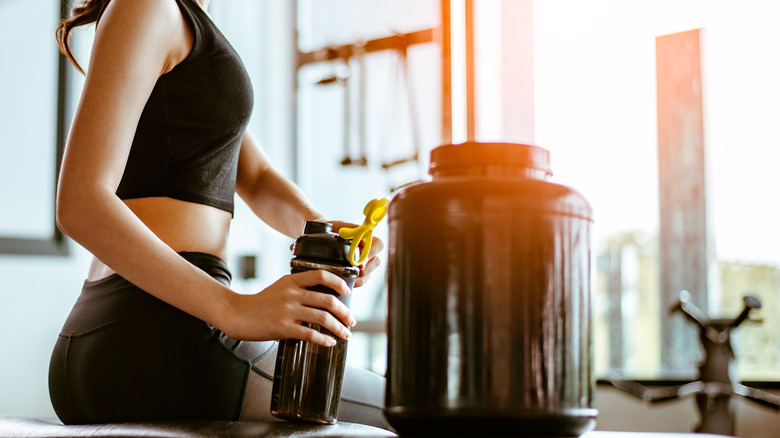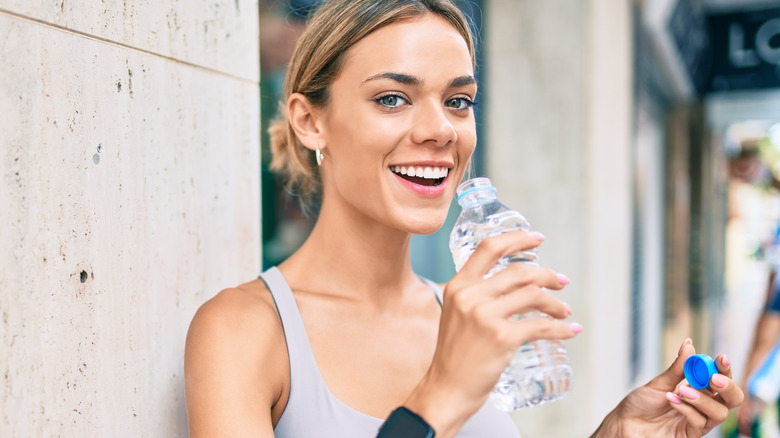Drinks You Should Avoid After Your Workout
If you are working out, you likely care about your wellbeing. Exercise has many health benefits, such as reducing your risk of obesity, diabetes, and cancer (per U.S. National Library of Medicine). For many people, the ideal follow-up to a good workout is a thirst-quenching, refreshing drink that cools them down. This is all well and good, but the last thing you want to do is have a drink that counteracts all of the health benefits you received from working out.
Ironically, sports drinks may do just that. Advertisers tend to focus on how sports drinks replenish electrolytes, but electrolyte depletion is typically only a problem for intense exercise lasting longer than an hour. After less intense exercise, sports drinks function as just another sugary drink. Studies show that people who have sugary drinks, including sports drinks, are more likely to gain weight (per Harvard School of Public Health).
Sports milks are not necessarily healthy alternatives, as they are highly processed. Alcohol should also be avoided, as it is a diuretic and can dehydrate you after you have lost fluid from exercise. Since your heart is already pumping, you may also want to lay off on the caffeine (per Prevention).
This is what to drink after working out
Although packaged sports milks are heavily processed, nutrition consultant Diane Sanfilippo tells Prevention that people can make their own sports milk by mixing water with an additive-free protein powder, cacao powder, and a bit of maple syrup. This can help replenish glycogen, making you feel less tired after a workout.
Vandana Sheth, a spokesperson for the Academy of Nutrition and Dietetics, noted to Prevention that coconut water is a good alternative for people who want to replenish their electrolytes. People who crave soda for carbonation may want to consider sparkling water, perhaps flavored with slices of lime or lemon. If it's the caffeine you're craving, you may want to try chocolate milk or add cacao to a smoothie.
In a lot of cases, the best option is just plain water, says the Harvard School of Public Health. If you choose water, you may want to keep it cold, as cold water may do a better job hydrating you and cooling you down. According to the U.S. Centers for Disease Control and Prevention, you may even want to put a freezer-safe water bottle in the freezer to make sure you have icy cold water to enjoy after your workout.

